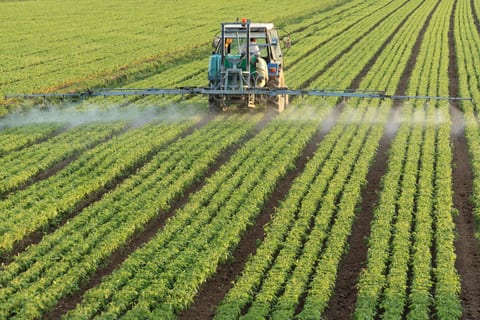
RECESS WATCH: Farm Bill
Taxpayers Protection Alliance
August 16, 2013

Last week, the Taxpayers Protection Alliance began a series called “Recess Watch,” focused specifically on issues and legislation that will be waiting to be dealt with once Congress returns in September. The first edition (last week, read here) focused on the train wreck that is Obamacare and the efforts by TPA to delay the implementation of the health care law. This week, the issue at hand is something else that TPA was and still is heavily focused on, the Farm Bill. The Farm Bill is still unfinished, and to date the work that has been done collectively by both chambers has been nothing short of an embarrassment as well as an insult to taxpayers from every state and every district in America.
Heading into this year there was a real need and legitimate opportunity for common sense steps aimed at reforming agriculture policy that could save taxpayers and help pay down the debt. This Congress had a wide-open shot to enact meaningful reforms with a number of steps can to create a more accountable, responsive, and cost-effective approach with a new Farm Bill. As TPA wrote earlier this year, “despite the 2012 drought being one of the most severe in history, the agriculture industry “suffered” with near-record profits. Given today’s extraordinarily high commodity prices and farm profits and our monumental fiscal crisis, agriculture subsidies should be reduced by at least $100 billion over the next decade.“
TPA expanded its efforts on the Farm Bill by joining in a coalition to push for real reform. TPA also identified specific areas where taxpayer money was being wasted including the Rural Utilities Service Broadband Loan Program, sugar subsidies, and even duplicate catfish inspections! The sheer amount of money wasted couldn’t have been clearer not only to TPA and other like minded groups that we continually worked with in attempting to gain steam for a reform-minded Farm Bill, but also those outside of Washington after the amount of attention that was focused on exposing the continued unnecessary spending that has been a part of the Farm Bill for decades.
The Senate passed a Farm Bill by a 66-27 vote and it was nothing less than disappointing as there were limited amendments and the process was purposely rushed so as to ensure that real reform wouldn’t have much of a chance at taking place. The fight then shifted focus to the House and once again the process was limited and moved at a fast pace preventing any chance at real reform. However, there was a surprising early victory as the House Farm Bill failed to pass! This was followed by another victory when the House adopted one of the key elements of reform as they looked to have another vote and decided to separate the Supplemental Nutritional Assistance Program portion (aka SNAP) from the agriculture policy portion of the legislation. Unfortunately this move was accompanied by a closed-rule process that in-turn eliminated any chance at reform to the elements related to the Ag industry. The House version of the ‘farm-only’ Farm Bill went on to pass the House 216-208 and needless to say, TPA was neither impressed nor pleased with the outcome. The only Republican to vote against the rule was Walter Jones (R-N.C.) and the Taxpayers Protection Alliance applauds Congressman Jones for his vote.
Fast forward to a little more than a month to today, and we still have no legislation that has been agreed upon by the Senate and House due largely to the decision to separate the SNAP portion on the House side, which the Democrat-led Senate and White House vehemently oppose. When Congress returns, the work on the Farm Bill will have to be dealt with and TPA urges the House to go back and work on a bill that aims for meaningful reform by allowing an open-amendment process giving Representatives from both sides of the aisle a chance to introduce ways that will save taxpayers money, eliminate needless and excessive subsidies, and focus the Farm Bill on relevant and productive agriculture policy initiatives. TPA is fully supportive of the decision to separate SNAP from the Farm Bill and urge the House to hold firm in that position. The goals of the Farm Bill should be as stated earlier: a more accountable, more responsive, and more cost-effective approach. There is still an opportunity to meet that threshold and Congress should do their part to achieve those goals.
